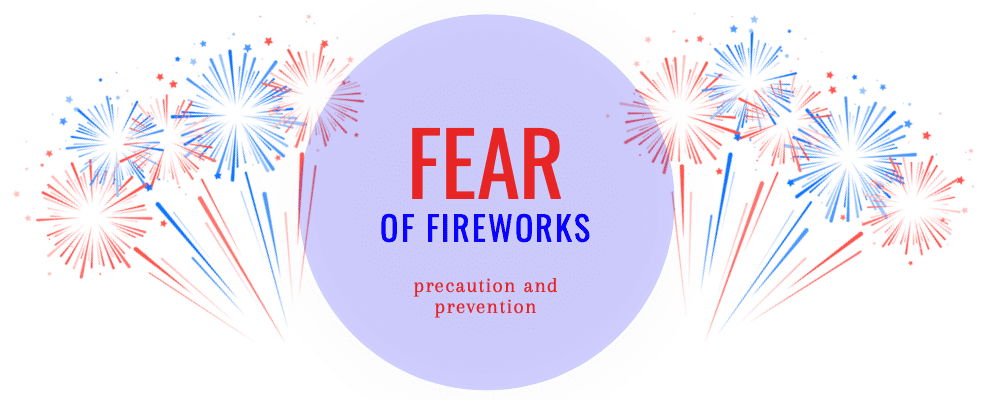As we throw steaks on the grill and ooh and ah at fireworks on the Fourth of July, it’s easy for us to forget our pets may not be as enthusiastic about the festivities as we are. When afraid, a dog’s normal instinctive behavior is to try to escape from the noise, or seek shelter to avoid danger. But things can go awry when dogs overreact to sounds that don’t represent danger.
Characteristic behavior can include but may not be limited to hiding, urinating, defecating, chewing, drooling, panting, pacing, trembling, shaking, and barking. A fearful dog might seek out his human family, try to escape the noise by jumping through windows or chewing through walls, or run away.
With Independence Day quickly approaching, you’ll want to consider your pet’s noise phobia when you make your plans.
Here are some tips to help keep your dog calm, making for an easier holiday for both of you.
Keep your dogs and cats inside: A startled pet may bolt unexpectedly, and even their own backyard can feel scary when fireworks are going off. Restricting them to the house for a few critical hours is a small price to pay for their safety.
Create a quiet, cool space: Stressed pets often overheat and a cooler space may be more comforting.
Use distraction: Play soothing music or turn on the television for white noise to drown out exploding firecracker sounds. A favorite toy or treats also can reduce anxiety.
Keep your pets away from windows: More than one veterinarian has seen a startled dog smash through a window.
Don’t bring your dog to fireworks displays: Veterinarians recommend that you resist the urge to take pets to firework displays. Even if your dog isn’t afraid of loud sounds, fireworks may stress out and frighten your pet. Just don’t do it.
Update microchip and ID tag information: Make sure your pet’s microchip and ID tag information has your current contact information. It’s the best way to get your pet safely returned should they get startled and make a run for it.
At July 4th parties, keep alcohol away from pets: Cats and dogs can become dangerously intoxicated, leading to severe health emergencies such as respiratory failure and even comas and death. Beer with fermented hops and ethanol is especially toxic to cats and dogs.
Avoid table scraps: Avoid the urge to feed your pets fatty barbeque scraps or foods intended for your people guests. Some food can cause upset stomachs and may even be toxic to your pet.
Don’t forget the horses: If there are fireworks in the area, depending on the temperament or routine of your animals, decide if it is best to have your horse remain in its stall or out in the pasture. Make sure fencing is secure and gates are firmly latched.
Learn about available medications or other options for calming nervous pets before the big day: For some animals, medication can help decrease stress and calm a nervous pet. Non-pharmaceutical products, such as calming coats or herbal remedies can be considered. Other pets need something prescribed that is a little stronger. Consult your veterinarian about medications and their side effects, as well as other strategies to help your pet.
